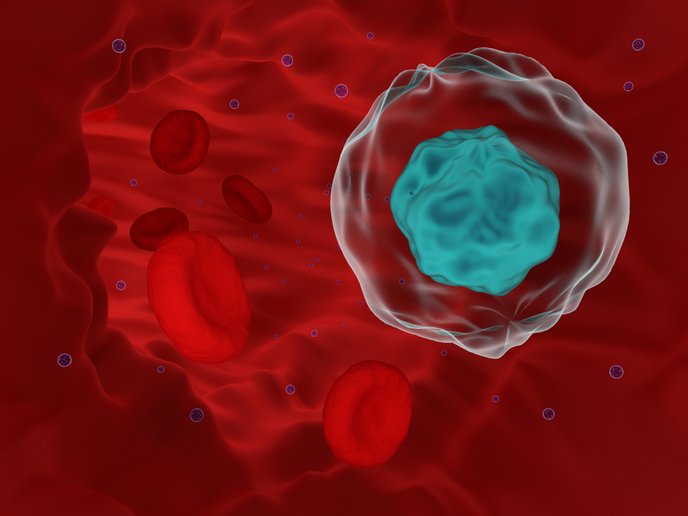Accurate but non-invasive test for breast cancer in a kit
Early diagnosis is a must for breast cancer; a late diagnosis may mean more invasive treatment or, at worst, a low survival rate. Mammograms are effective, but limitations are that false-negative results give women a false sense of security. Equally serious, false positive results mean the prospect of unnecessary invasive biopsies and an extended wait for diagnosis. The project BrEXo-Apt, partly funded by the EU, has developed a non-invasive yet accurate test for breast cancer that is to be available in a kit form. Based on specific biomarkers in the blood, the screening enables early tumour detection on the largest scale of patients possible.
Molecular design is the key
The researchers have developed molecules that fold into specific shapes and recognise and bind to specific breast cancer proteins on the surface of vesicles, called exosomes(opens in new window). Alan Chan, the BrEXo-Apt project coordinator, explains: “Breast cancer cells secrete fluid-filled sacs or vesicles called exosomes. We have developed aptamers(opens in new window), nucleic acid molecules, to bind to these exosomes, and they can be designed to be specific.” “Exosomes are normally found in the blood from other cells. What we have done is to create aptamers that recognise and bind only to those secreted from breast cancer cells,” Chan emphasises. “In this way, the aptamers behave like antibodies, but differences are that these are cheaper as they are easier to produce and more stable in the lab as well as real-life diagnosis.” Specificity is all-important. Different stages of cancer have a unique set of proteins on the outside of their cells. “This means that with the right aptamer shape, we can say what stage of cancer we are looking at,” Chan notes.
A bright prospect for cancer diagnosis
The project was terminated in December 2019 because the Marie Skłodowska-Curie Actions programme(opens in new window) fellow secured a fixed research position. Project host Percuros BV(opens in new window) finalised all remaining project objectives, independently of EU funding. Based in the Netherlands, researchers at Percuros are currently working on concluding all tests for the finalisation of a kit. All preclinical validation has been performed, and the researchers are working on the go-to-market phase. Testing included control patients with no breast cancer, and the results were negative. Tests for positive recognition of breast cancer should continue to show recognition by the aptamer. Their work includes other cancers in the diagnostic repertoire. Pancreatic cancer is one of the malignancies that would be particularly appropriate as it is often diagnosed at later stages. Although the aptamers would be different, the methodology would be the same as for breast cancer. The project results have been published in the International Journal of Molecular Sciences(opens in new window), and the team continues to work to translate the testing to point-of-care. Chan concludes: “The exciting part of our work is that we have found a marker that indicates early stage breast cancer, so intervention can be timely with the best possible prognosis for the patient without being invasive.”







